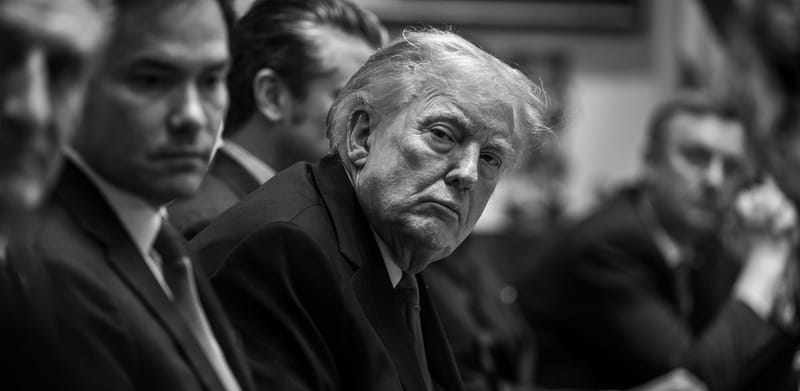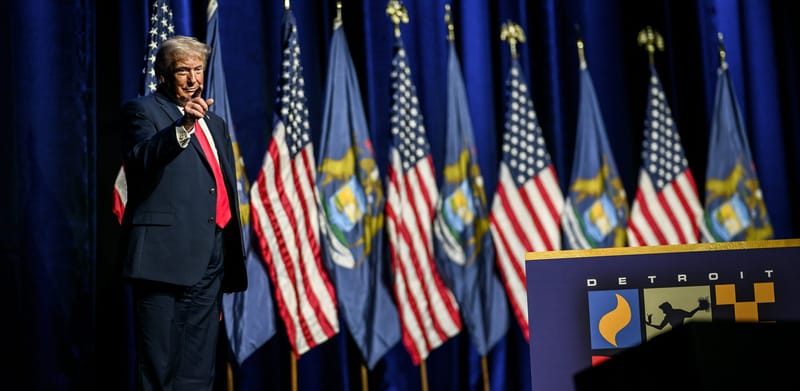Could Portugal 2025 be Britain 2029?
Farage’s Reform Party surges past Conservatives in polls after sweeping local wins, echoing Portugal’s far-right Chega party rise. Britain’s political centre wobbles as 2029 looms. Illusion or inevitable realignment?
I n Portugal, the far-right Chega party has become the country’s main opposition after final votes were counted in the parliamentary election from earlier this month. This is a significant development, which ends a half-century of political dominance by two centrist forces.
Could Britain be headed the same way? Could Portugal 2025 be Britain 2029?
The next British general election is due 2029, but what if there were a snap poll, as happened in Portugal?
Would Nigel Farage’s populist Reform Party do a Chega?
At this point of time, it feels dangerously likely.
Reform did very well in the May 1 local elections, which were the first electoral test of public opinion since Labour’s victory in the 2024 general election. And opinion polls consistently show a sizable lead for Reform.
On Thursday, May 29, the BBC’s top two UK political correspondents wrote a piece that began as follows:
“Could this be like the 1920s, where the Liberals got overtaken by Labour — but this time it’s the Conservative Party being overtaken by Reform?”
The BBC correspondents were quoting a shadow cabinet minister, and so, a member of the very party whose extinction they believe is possible.
To be fair, the BBC report also had the Conservative Party member offer a slightly more bracing view as well: “The shadow cabinet minister went on to stress that they were more optimistic: that the resilience of what is often called the world’s most successful political party should never be underestimated.”
Even so, British politics can truly be said to be at a pivotal point, a fork in the road or even a seismic shift.
On Thursday, Prime Minister Keir Starmer was scheduled to go on the attack against the Reform leader. It too was a sign of the governing Labour Party’s expectation that Mr Farage and his party are the main political challenger, not the Conservatives.
Is this true?
Certainly, Mr Farage is making the most headlines and figuring in most of the political chatter.
The local election results for 1,641 council seats across 24 local authorities have been described as a spectacular victory for Reform. It won the most seats, taking control of a number of councils. It also won the mayoralty of Greater Lincolnshire and Hull and East Yorkshire, two large authorities that assumed their current political structure only a short while ago.
Meanwhile, Reform now stands at around 30 per cent in the opinion polls, ahead of Labour and far above the Conservatives. The party appears to be the beneficiary of a Conservative collapse at a time when the Labour government has rapidly become unpopular.
So will Reform do a Chega?
It’s hard to say what will happen four years on. Mr Farage is trying to position his party in a prime electoral spot of social conservatism and economic progressivism. But really, as the FT’s Robert Shrimsley, one of the sharpest political analysts, says, “central to everything is the plate he has to keep spinning: the belief that Reform really can win the next election and, in particular, that the Tories cannot recover. This is the essential illusion of inevitability.”
It’s smoke and mirrors. Until it’s not.

GOING FURTHER
The Conservative Party faces problems - is its leader one of them?The Conservative Party faces problems - is its leader one of them? | BBC NEWS
Nigel Farage and the perils of peaking too soon | FINANCIAL TIMES
Reform UK pledges cuts as £27m civil service diversity spend revealed | THE TIMES
Pollster warns of ‘political earthquake in UK’ after polls show Farage could be PM | THE INDEPENDENT
The economic fantasies of Reform UK | NEW STATESMAN







